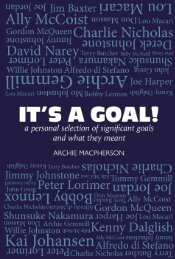Irish Unity by Ben Collins sampler
Irish Unity is the first book to explore Irish reunification in the aftermath of Brexit which is written by Ben Collins who comes from a pro-British and Unionist background and has lived and worked across the UK. In this book Collins explains how he has come to favour Irish Unity. He uses his twenty years of experience working in political communications to give his insight on the current situation regarding the building momentum for Irish Unity, the importance of the Good Friday Agreement and Brexit. In this book he sets out what it would take to win a Border Poll referendum and the importance of preparation in advance. Inspired by the momentum of the Scottish referendum and taking lessons from elsewhere, Ben Collins guides the reader through the steps needed from both sides that he believes will unite Ireland. Collins gives deep insight from a Northern Ireland perspective about how the financial, cultural and social ramifications could pan out for citizens in both parts of Ireland and how it would affect the United Kingdom, Europe and the world.
Irish Unity is the first book to explore Irish reunification in the aftermath of Brexit which is written by Ben Collins who comes from a pro-British and Unionist background and has lived and worked across the UK. In this book Collins explains how he has come to favour Irish Unity. He uses his twenty years of experience working in political communications to give his insight on the current situation regarding the building momentum for Irish Unity, the importance of the Good Friday Agreement and Brexit. In this book he sets out what it would take to win a Border Poll referendum and the importance of preparation in advance.
Inspired by the momentum of the Scottish referendum and taking lessons from elsewhere, Ben Collins guides the reader through the steps needed from both sides that he believes will unite Ireland.
Collins gives deep insight from a Northern Ireland perspective about how the financial, cultural and social ramifications could pan out for citizens in both parts of Ireland and how it would affect the United Kingdom, Europe and the world.
You also want an ePaper? Increase the reach of your titles
YUMPU automatically turns print PDFs into web optimized ePapers that Google loves.
irish unity<br />
a student in Scotland but, of course, I would have voted Yes if I had<br />
the option to do so.<br />
The Good Friday Agreement was a historic compromise which<br />
was negotiated and voted for after much hard work <strong>by</strong> President<br />
Clinton’s Administration, the UK and <strong>Irish</strong> governments and the support<br />
of the EU, as well as political representatives and ordinary citizens.<br />
Making right with your enemies can never be easy, but the<br />
agreement ushered in peace and a power- sharing government which,<br />
although not perfect, was a huge step forward for the people of<br />
Northern Ireland and indeed Ireland as a whole. It also helped to<br />
create better relationships between Ireland and Britain (the status of<br />
the UK and Ireland as neighbouring member states of the EU, often<br />
with common interests, helped to strengthen links too).<br />
I did believe that in the run- up to the Good Friday Agreement,<br />
David Trimble was a lone visionary within Unionism, so as a master’s<br />
student in political communications, I spent a couple of weeks<br />
doing work experience for the Ulster Unionist Party during the<br />
2001 Westminster Election. While I was never a member of the UUP,<br />
I knew they needed to remain as the largest Unionist party, ahead<br />
of the DUP, so that the gains of the Good Friday Agreement could<br />
be maintained.<br />
That same year, I joined the UK Conservative Party in Scotland<br />
and I felt comfortable with the Scottish Conservatives, who were<br />
more liberal and more pro- European than their English counterparts.<br />
I have always been a classical liberal in the sense that I believe<br />
in personal freedom, free trade and democracy which is as close<br />
to citizens as possible and I had joined this party in the hope and<br />
expectation that Ken Clarke, a pro- European and socially liberal MP,<br />
would become the leader. I was wrong.<br />
In 2003, I left the Conservative Party. A new job with the General<br />
Medical Council (the UK regulator for doctors) meant that I was no<br />
longer able to be politically active, but I was glad to leave – I was<br />
becoming increasingly disillusioned with the party’s growing Euroscepticism.<br />
I was pleased <strong>by</strong> the formation of the Conservative– Lib<br />
Dem government coalition in 2010 but always felt that it was likely<br />
to be a one- term arrangement. It did not take long after the coalition<br />
ended for the extreme right- wing part of the Conservatives to flex<br />
their muscles. The party has marched, rather than drifted, towards<br />
being a right- wing, populist entity. While I still have friends within<br />
the party, I do not feel any connection with the Conservatives.<br />
24


















